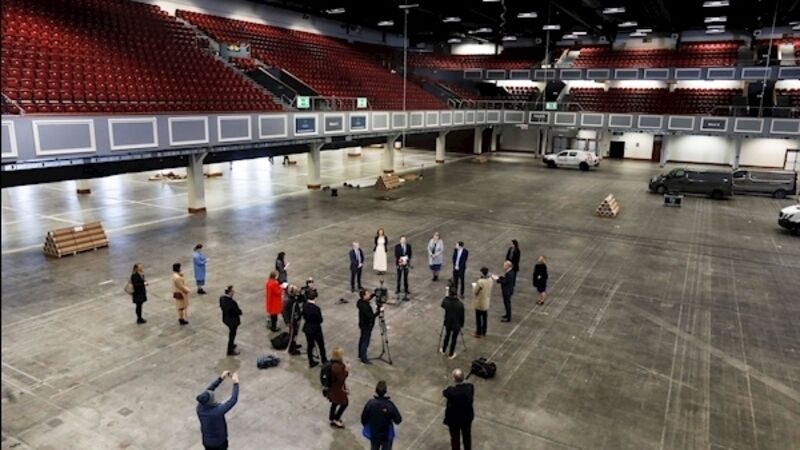Varadkar: Health authorities scaling up emergency bed capacity as frontline staff prepare for surge

Taoiseach Leo Varadkar has said health authorities are scaling up their emergency bed capacity in hospitals as frontline staff prepare for a surge in Covid-19 infections.
Mr Varadkar, Health Minister Simon Harris and HSE CEO Paul Reid today visited Citywest hotel where another 2,000 beds for patients with the virus and suspect cases are being made available.













